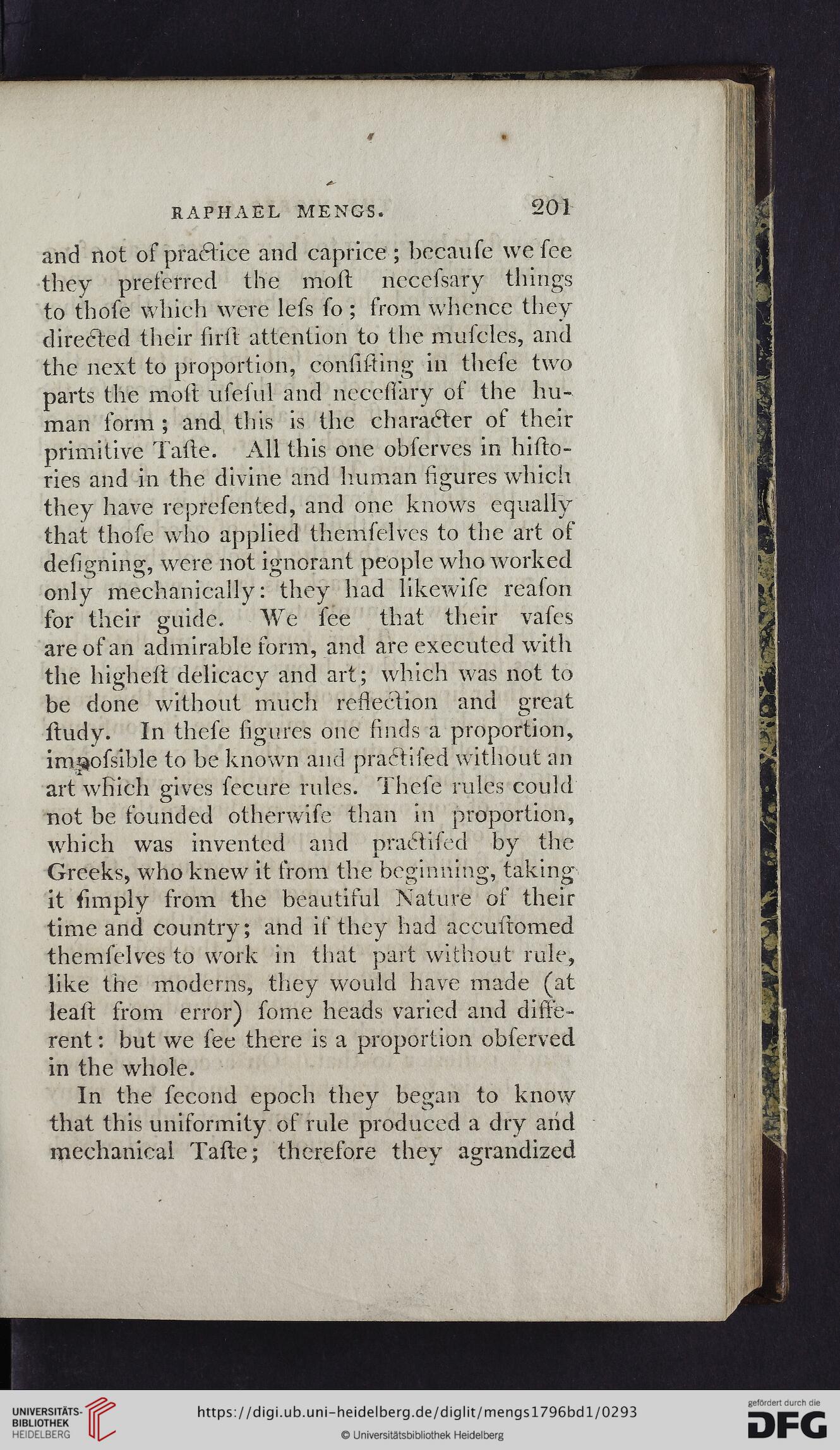RAPHAEL MENGS.
201
and not of practice and caprice ; because we see
they preferred the most necessary things
to those which were less so; from whence they
directed their sirst attention to the muscles, and
the next to proportion, consining in these two
parts the moft usesul and necessary of the hu-
man form ; and this is the character of their
primitive Taste. All this one observes in histo-
ries and in the divine and human sigures which
they have represented, and one knows equally
that those who applied themselves to the art of
designing, were not ignorant people who worked
only mechanically: they had likewise reason
for their guide. We see that their vases
are of an admirable sorm, and are executed with
the highest delicacy and art; which was not to
be done without much ressection and great
study. In these sigures one finds a proportion,
impossible to be known and pradtised without an
art whicli gives secure rules. These rules could
not be founded otherwise than in proportion,
which was invented and praftised by the
Greeks, who knew it from the beginning, taking
it fimply from the beautiful Nature of their
time and country; and if they had accusiomed
themselves to work in that part without rule,
like the modems, they would have made (at
least from error) some heads varied and diffe-
rent: but we see there is a proportion observed
in the whole.
In the second epoch they began to know
that this uniformity of rule produced a dry and
mechanical Taste; therefore they agrandized
201
and not of practice and caprice ; because we see
they preferred the most necessary things
to those which were less so; from whence they
directed their sirst attention to the muscles, and
the next to proportion, consining in these two
parts the moft usesul and necessary of the hu-
man form ; and this is the character of their
primitive Taste. All this one observes in histo-
ries and in the divine and human sigures which
they have represented, and one knows equally
that those who applied themselves to the art of
designing, were not ignorant people who worked
only mechanically: they had likewise reason
for their guide. We see that their vases
are of an admirable sorm, and are executed with
the highest delicacy and art; which was not to
be done without much ressection and great
study. In these sigures one finds a proportion,
impossible to be known and pradtised without an
art whicli gives secure rules. These rules could
not be founded otherwise than in proportion,
which was invented and praftised by the
Greeks, who knew it from the beginning, taking
it fimply from the beautiful Nature of their
time and country; and if they had accusiomed
themselves to work in that part without rule,
like the modems, they would have made (at
least from error) some heads varied and diffe-
rent: but we see there is a proportion observed
in the whole.
In the second epoch they began to know
that this uniformity of rule produced a dry and
mechanical Taste; therefore they agrandized




